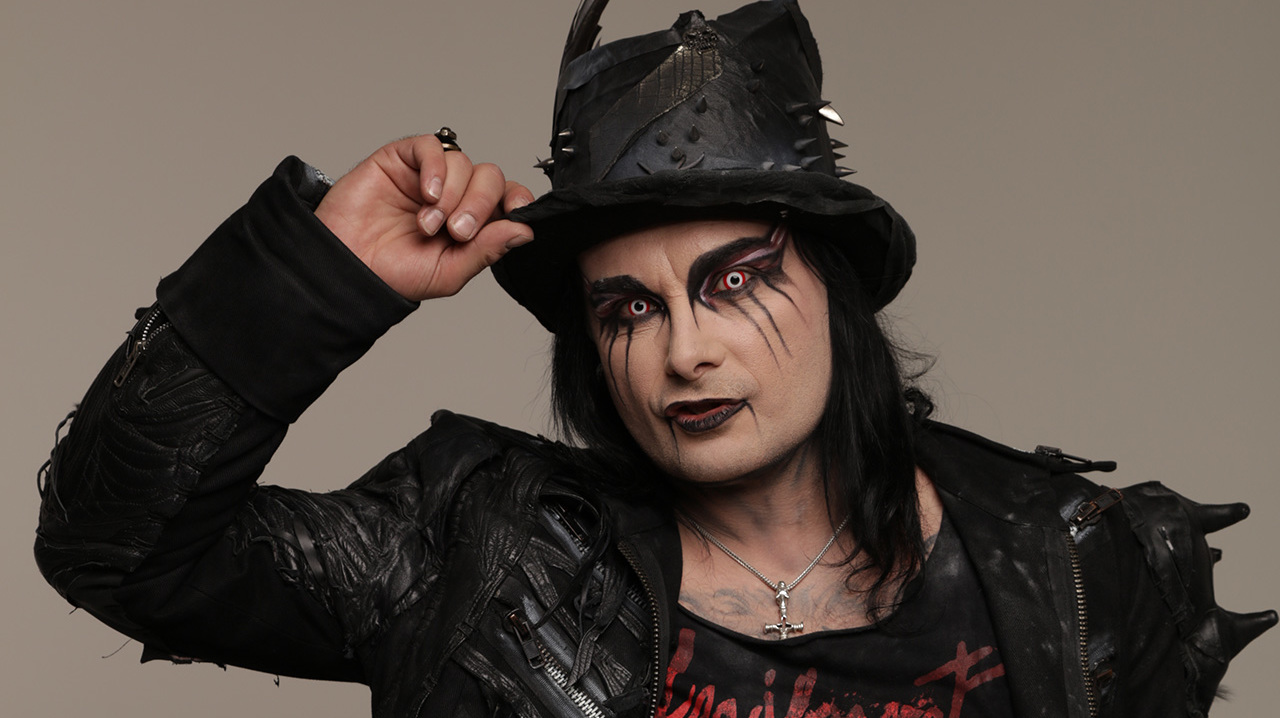If you’re a fan of heavy metal, there’s a very good chance that you’re already familiar with the devil’s tritone, whether you know it or not. Also referred to as the ‘diabolus in musica’ (‘devil in music’), this tool of sonic uneasiness is an interval of three tones whose dissonant qualities result in a superbly sinister feeling in the listener. Its use in metal is as old as metal itself, being introduced to headbangers the world over via Black Sabbath’s sublimely doomy self-titled song.
It continues to be a useful component for the darker side of the genre, and one good example is Devilment’s new album II - The Mephisto Waltzes. Not only is it in the music, but the album title itself is inspired by both the devil’s interval and four Faustian waltzes created by Franz Liszt, a 19th century Hungarian composer and musician who ably wielded the diabolus in musica himself. As frontman Dani Filth explains, the unearthly qualities of the technique – and more generally the minor key as a whole – underpin the foundations of not only his own work in Cradle Of Filth and Devilment, but metal itself.
“The devil’s tritone and the minor key is basically what metal’s based around,” he begins. “You can’t have anything major in metal – unless you’re Sonata Arctica! I’m a massive soundtrack buff – in fact, I listen to more soundtracks than I do metal – and the soundtracks I like tend to use the diabolus in musica. The element there is tragedy, it’s like Edgar Allan Poe; it’s about beautiful women but it’s all about loss, it tugs on the heartstrings and I think it’s the same with metal. Sometimes in the studio there are parts in a song that are just too happy, and then we do something in minor key because it needs that.”
“Full Dark, No Stars [the fourth song on the new album], that was very bright, and big so that’s why we needed a mid-section that goes to a minor key. It’s like that’s the whole thing with Maiden – to make the glorious parts sound glorious you need the ‘abyss’ section; Hallowed Be Thy Name is a perfect example, full of melody but it’s all tragic.”
As well as its practical psychological effects upon the listener, there is of course also a significant degree of notoriety around the diabolus in musica. The story famously goes that it was banned by the church in earlier times, due to concerns over its unholy properties. There is some doubt as to whether it was ever actually made illegal however, and many music historians claim that it was more likely to have been discouraged for practical reasons due to the technical challenges that accompany it, most obviously in terms of training singers. In any case, its lack of harmony made it challenging for listeners used to hearing religious and harmonious music, and composers using it were making a considerable statement. Perhaps not so much has changed in that respect, since it largely remains the forte for those uninterested in mainstream acclaim.
“There was no heavy metal in the 18th century, so [Igor] Stravinsky would have been the star of his day with The Rite Of Spring. Apparently when he first played that people were literally leaving, going, ‘What the fuck is going on here?’ They felt it was evil. I mean, Reign In Blood would sound like shit in major chords. Would be more like Reign In Men!
“Even in metal there’s been a transition from bands like At The Gates toward the [more mainstream] metal stuff we have today, and the transition is the major chord. And the major chord is the gateway to Radio 1! But for us, this sound isn’t depressing, it’s uplifting and I think that’s what metal is about. On face value it’s like [adopts grumpy voice] ‘Oh, depressing, black, long hair,’ but people don’t see the beauty in it, the tragedy.”
Devilment’s new album II – The Mephisto Waltzes is released on November 18, via Nuclear Blast.
Devilment will be touring the UK from December 6-19.
Devilment album review – II: The Mephisto Waltzes
Why I Love... Danzig by Dani Filth, Cradle Of Filth/Devilment
